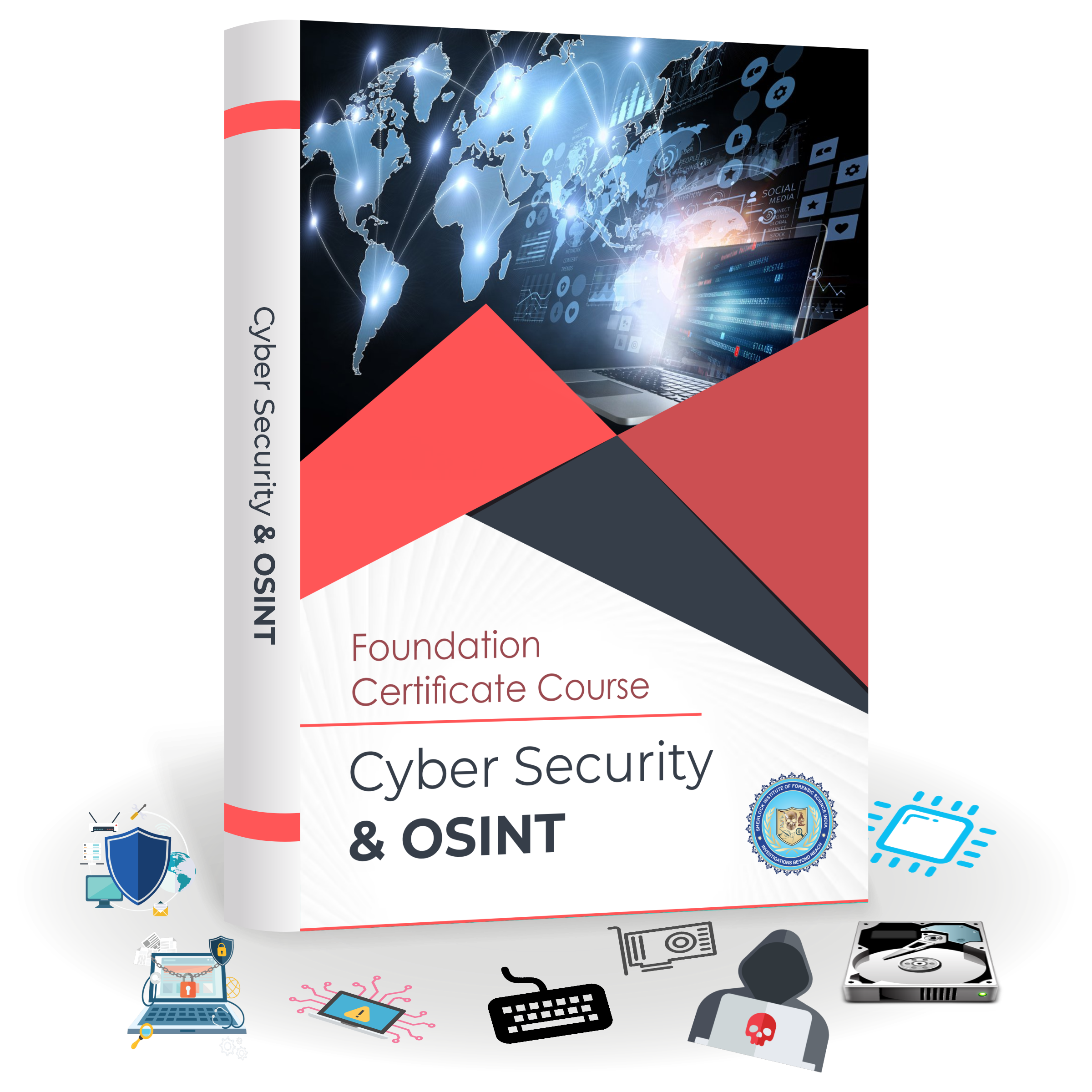The Cyber Security and OSINT course is incredible! I gained an in-depth
understanding of the field and what practical skills are needed to pursue a
career in it, along with superb guidance from highly knowledgeable faculty.
Highly recommended.

Certification
Foundation Course Certificate
Mode of Study
100% Online Start now and learn from anywhere
Learning Hours
15 hours of Video Sessions
Learning Medium
English
Learn Forensic at Your Own Pace, Master at Your Own Time!
Unlock Your Potential with Self-Paced Learning!
Learn Anytime, Anywhere
No schedules, no pressure! Study at your convenience
Go at Your Own Speed
Master concepts without rushing or slowing down
Full Access to Course Materials
Revisit lessons whenever you need
Expert-Led Content
Gain industry-relevant skills from top instructors
Perfect for Professionals & Students
Balance learning with your lifestyle
Affordable & Cost-Effective
No travel, no extra expenses, just pure learning!
Earn a Recognized Certification
Boost your resume and career prospects
Join Thousands of Successful Learners Today!
Enroll Now & Take Control of Your Learning Journey!
Cyber security is the process of securing digital devices, networks, servers, and data from unethical online attacks. The online Cyber Security & OSINT Foundation Certificate Course by Sherlock Institute of Forensic Science (SIFS India) will help you gain knowledge about several online privacy protection techniques you can implement to protect yourself from ever-growing digital world crimes.
In this pre-recorded course you will learn internet security basics along with several case studies and digital threat detection techniques. The curriculum is regularly updated as per the latest industry trends and requirements and is taught by cyber security experts and researchers constantly working to devise new methods of online security. You will learn cyberspace architecture, types of cyber crimes, IT acts, social media platforms monitoring, eCommerce threats, digital payment frauds, data back up, device security, how to collect publicly available data and analyze it for any malicious content that can harm the online security of individuals, organizations, or even countries. along with several other crucial cyber security aspects.
In this era of digitalization, the scope of this field can never go down and is emerging as the most lucrative field of study. However, globally, there is a huge gap between the current number of skilled cyber security experts and what is actually needed. To fill this demand and supply gap, we would like you to enroll in this web-based cyber security course and begin your journey to protect society from such threats.
Become Proficient to Answer:
- What is cyberspace architecture, how does it relate to the internet infrastructure and governance of data transfer, and what are the cyber security challenges?
- What are the various types of cybercrimes, including those targeting computers and mobile devices, and what are the modus operandi of cybercriminals?
- What are the steps to report cybercrimes, and what role does the IT Act 2000 play in addressing cybercrime in India?
- What are the different types of social media platforms and the challenges and opportunities presented by online social networks?
- How can security issues like inappropriate content and privacy concerns related to social media be addressed in accordance with the legal system?
- What are the main components and elements of e-commerce security and the threats faced by this industry?
- What are the various modes, common frauds, preventive measures, and RBI guidelines related to digital payments?
- What are the security measures and policies for endpoint devices and mobile phones, including password policies, data backup, and device security?
- What are the best cyber security practices, including the significance of host firewalls, antivirus software, and Wi-Fi security?
- What are the goals, capabilities, and limitations associated with open-source intelligence (OSINT) investigations?
- How do you use web-based and proprietary open-source search tools to conduct investigations?
- How can social media research be conducted effectively to obtain and utilize sensitive personal data in investigations?
- What is metadata in files, and how can it be accessed, modified, or deleted for investigative purposes?
Learning Outcomes:
Understanding Cyber Security Fundamentals: After completing this course, you will have a strong understanding of the basic cyber security principles, including the identification of common threats and their preventive measures.
Effective Network and OS Security: You will learn how to implement security measures to protect computer networks and operating systems, thereby minimizing the risk of cyberattacks and unauthorized access.
Proficiency in OSINT Techniques: You will gain an understanding of using tools and techniques for gathering publicly available information from different sources for security and investigative purposes.
Ethical Hacking and Vulnerability Assessment: You will become aware of the difference between ethical and unethical hacking and learn ways to address security weaknesses in systems and applications.
Practical Application of Knowledge: You will become proficient in applying your cyber security and OSINT knowledge in real-world scenarios and making decisions to protect yourself from cyber threats.
Course Details:
Fee | National: 1770 INR (1500 INR + 18% GST) International: 50 USD |
Duration | 1 Month |
Eligibility | 12th Passed |
Session Timing | Learn at your own Pace |
Payment Details:
International Student : PayPal: forensicdocument@gmail.com
Account Details for National Student
Bank Name - ICICI BANK
Acc. Name - SIFS INDIA PVT. LTD.
Account No. - 663505500086
Type - Current
IFSC Code - ICIC0000160
Address - ICICI Bank, H-4, Model Town -III, New Delhi - 110009









